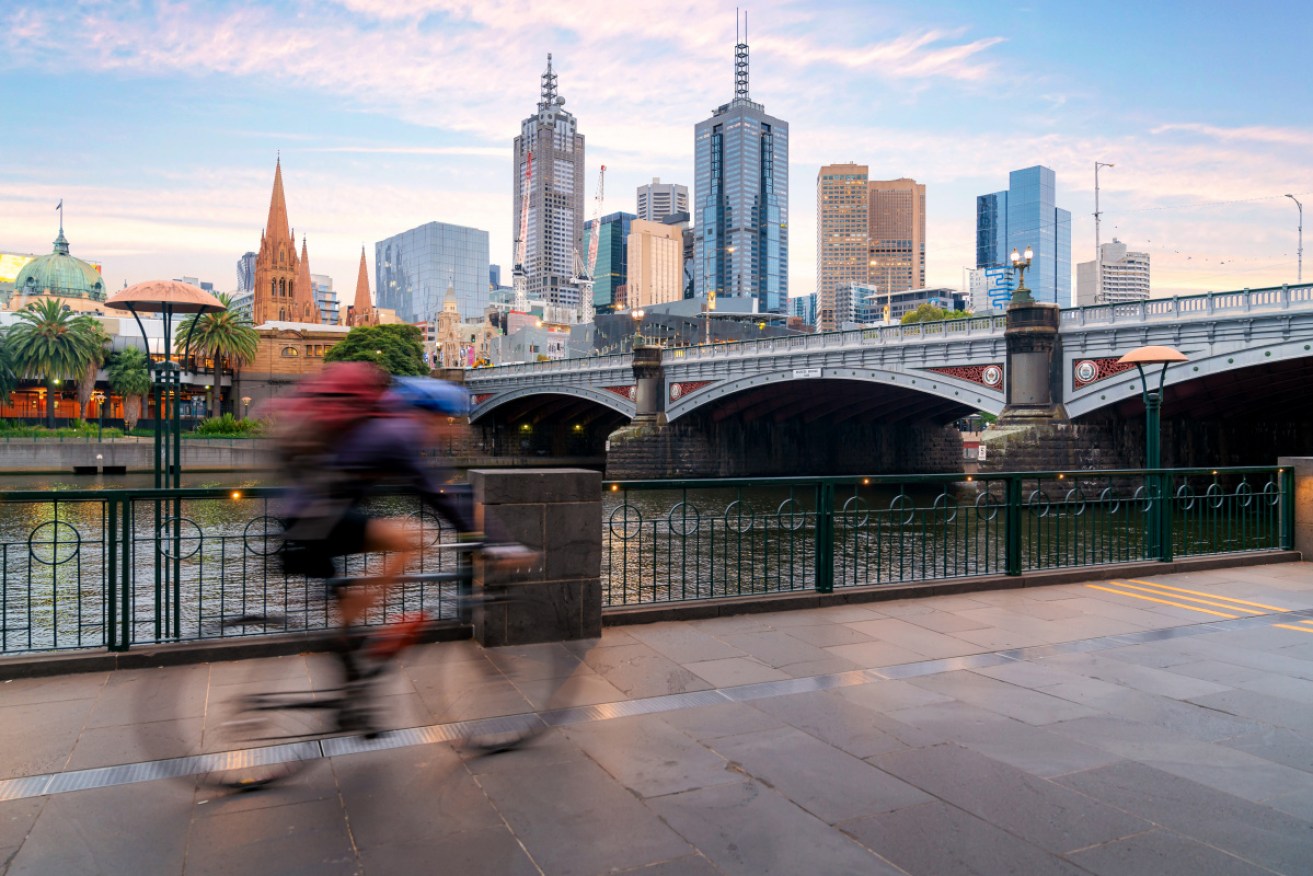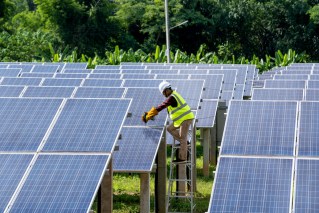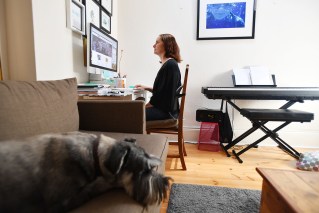‘Ghost towns’: Capital cities could be deserted in CBD office exodus


Australian CBDs could experience a significant drop in white-collar workers if major firms embrace long-term remote working. Photo: Getty
Australia’s capital cities face an exodus of white-collar workers that could leave CBDs looking like ghost towns within five years, experts say.
The expected transition away from city skyscrapers could also prompt a rise in suburban satellite working hubs and innovative firms teaming up with others to create new shared workspaces.
And early signs suggest change is already afoot.
Research from commercial real estate firm CBRE showed office vacancy rates in Australia’s three major CBDs spiked in the second quarter of 2020.
Sydney’s vacancy rates climbed from 3 per cent in 2019 to 5.4 per cent in June 2020, while Melbourne’s jumped from 2.0 per cent to 3.5 per cent, and Brisbane’s increased from 10.9 per cent to 12.4 per cent.
CBRE also found available subleasing space in Melbourne and Sydney has doubled since 2019.
That most of the gains occurred in the pandemic suggests smaller firms have begun reassessing their options.
The situation is particularly critical in Melbourne, where there are now 1172 active coronavirus cases.
Melbourne Lord Mayor Sally Capp told The New Daily the effects of the extended coronavirus lockdown on the city’s corporate sector are expected to linger well beyond this year.
“While there is much uncertainty, over 2020-21 we project the average weekday population of Melbourne will be down by as much as a third,” Ms Capp said.
“This would mean 300,000-400,000 fewer people in the city each weekday than before COVID-19.”
City of Melbourne foot traffic analysis conducted last week at Southern Cross station – a gateway to Melbourne’s corporate-heavy Docklands precinct – found pedestrian numbers had fallen 88 per cent compared to last year’s benchmark.
A separate City of Melbourne survey revealed as many as 15 per cent of inner-city businesses would shut their doors permanently as a result of the second lockdown.
Even before it was announced, NAB announced it would ‘mothball’ its Docklands offices (including its headquarters) indefinitely.
CBD office precincts could become ‘ghost towns’
Concerns over the future of CBD offices come as more workers embrace remote working and firms begin to reevaluate their expenses.
University of Melbourne lecturer in property Associate Professor Chris Heywood said although there is still some appetite for CBD offices, the long-term ramifications of the coronavirus crisis may not be fully understood for another two to three years.

Melbourne’s usually bustling Docklands precinct has been left largely deserted during the lockdown. Photo: Getty
That’s because standard office leases last roughly five years, he said.
“Remote working is likely to become a reasonably permanent working solution, so that will ultimately flow to the amount of space required by tenants,” Associate Professor Heywood told The New Daily.
“And NAB’s recent move is interesting because they’ve got a track record as one of the leaders when it comes to workplace change, so it begins to confirm this long-term shift away from central CBD offices and more of a demand for satellite facilities to support clusters of workers.
“There are parts of large CBDs such as Melbourne’s Docklands where you could end up with a ghost town-type scenario if major corporates begin exiting major buildings.”
‘Wait and see’ before major firms make their move
IBISWorld senior industry analyst James Thomson expects most major firms to take a “wait and see approach” before making large strategic decisions with their office spaces.
“But we’re likely to see businesses cancelling or delaying any expansion plans as the economic conditions deteriorate,” Mr Thomson told Thew New Daily.
“You might also see some companies look to be more flexible and pull together resources with other companies to reduce costs.”
Colliers International managing director of Australian office leasing Simon Hunt is still bullish about CBD office markets.
Tweet from @abc730
But he expects the number of enquiries and inspections to fall in Melbourne as a result of the second wave.
Mr Hunt told The New Daily that major corporates in particular may be more inclined to stay put because of the “collaborative potential” of their existing spaces.
“The metro markets are certainly a bit busier than CBD markets at the moment with people physically inspecting buildings, because they don’t have those same concerns they may have with high-rise CBD buildings,” Mr Hunt said.
“But CBDs are the places where major corporates want to be because they foster collaboration and an organisation can only create the right environment for that kind of culture through a shared space.”









